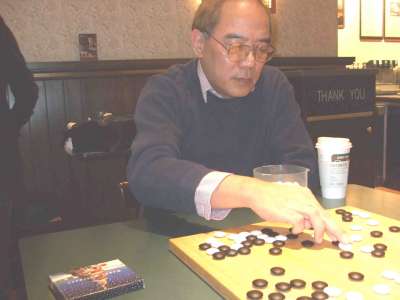
The Long Island Go Club (LIGC)
© 2009 Milton N. Bradley
THE LONG ISLAND GO CLUB
Founded 1976
A Chapter of The American Go Association
MEETS
EVERY WEDNESDAY
7:30 - 10 P.M.
(Arrive and/or leave early or late, as suits your own schedule.)
In The Starbucks Coffee Shop
At The
Beginners, Visitors, Spectators Welcome.
No Dues Or Fees!
+ LADDER MATCHES
EVERY SESSION.
Here Are Some Photos Taken At Our Weekly Meetings.

Mike Lin, 2D
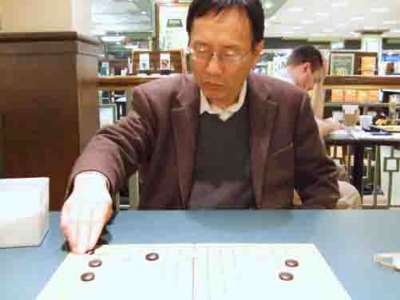
Nairn Baik, 2D
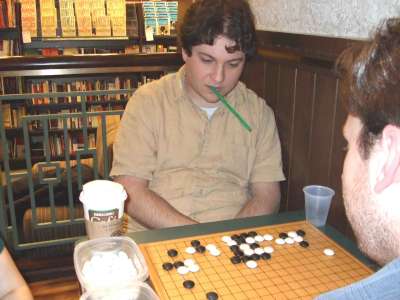
Saul Lapidus, 1D
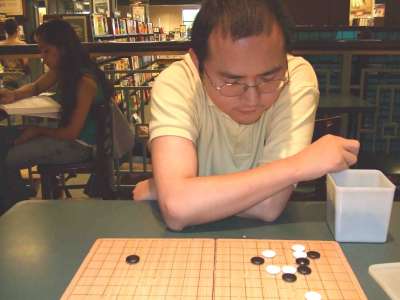
Hailong (Hayden) Huang, 1D
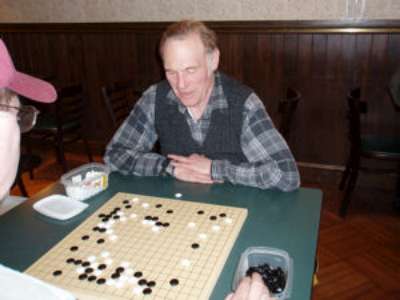
Clayton Wilkie, 1D
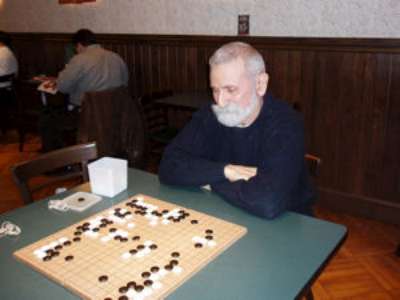
Milt Bradley, 1D
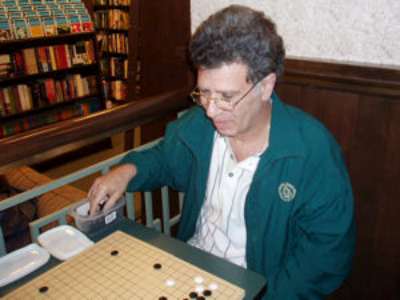
Randy Bradley, 1D
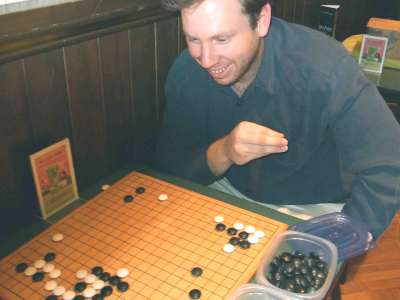
Nathan Borggren, 1K
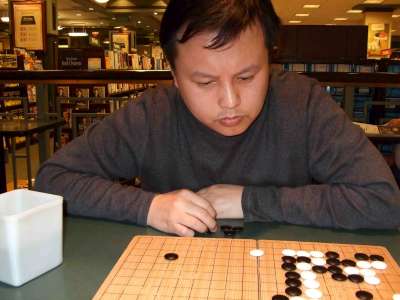
Eric Wong, 1K
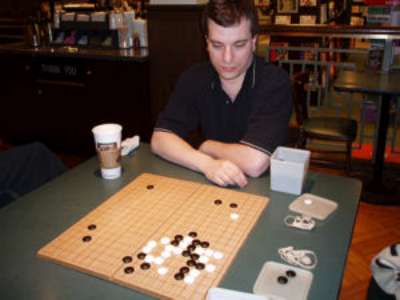
Andy Segal, 3K
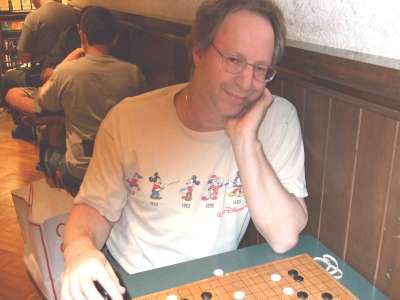
Dennis Grossman, 4K
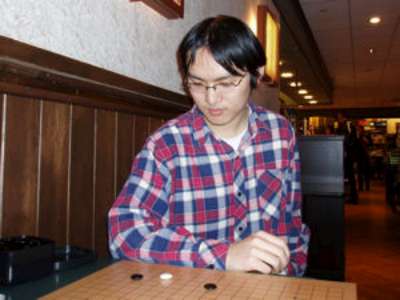
Jile Gao, 5K
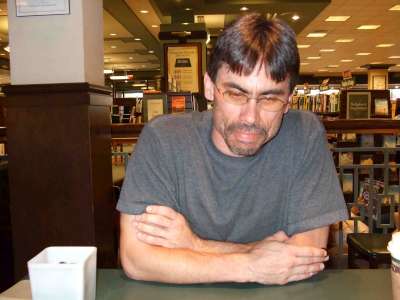
Erik Van Riper, 6K
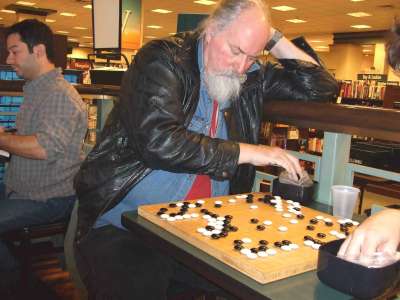
Dana Emery, 6K
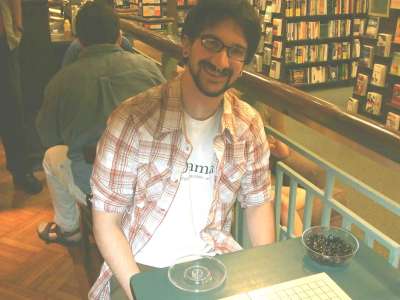
Bryan Barash, 6K
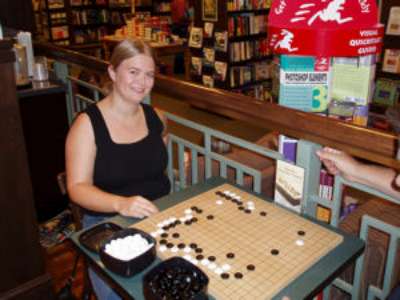
Carrie Lapidus, 6K
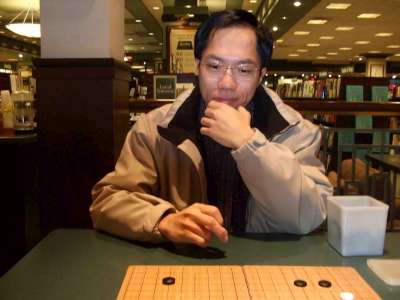
Joshua Lau, 6K
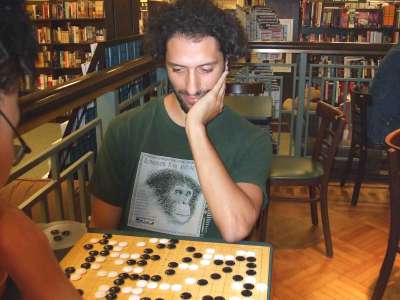
Tom Meli, 8K
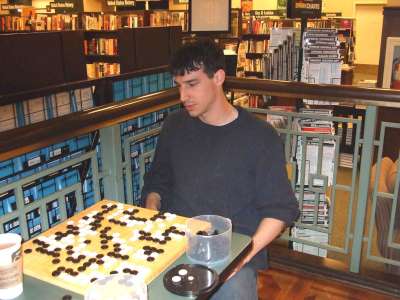
Adam Connell, 9K
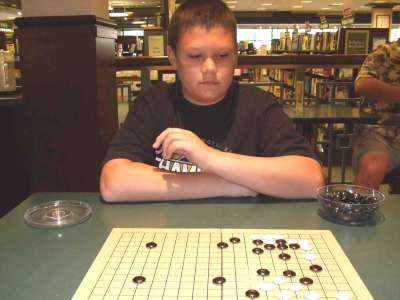
Kenny Lewis, 9K
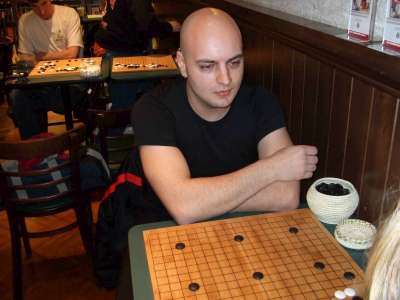
Josh Thompson, 9K
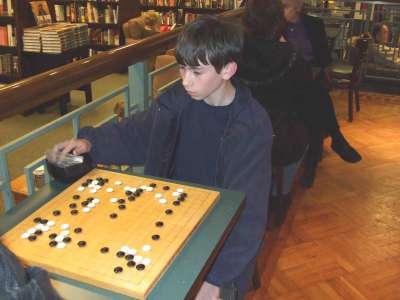
Patrick Kelley, 11K
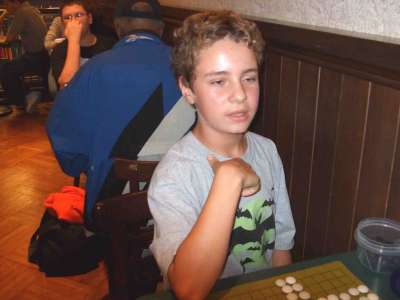
Rory Bennett, 12K
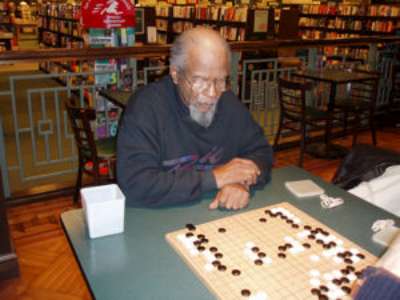
Ken Brown, 14K
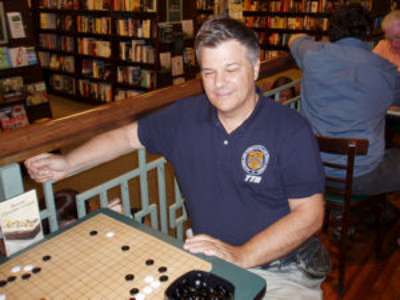
Frank Hall, 14K
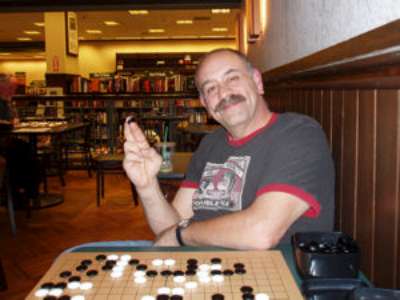
Steve Link, 14K
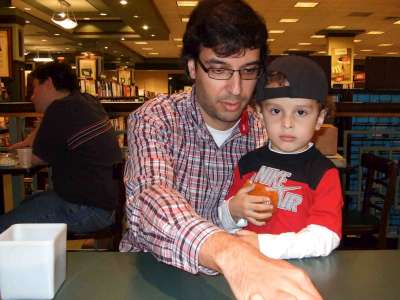
Jack Zar, 15K
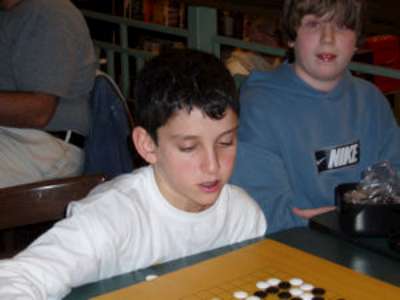
Zach Aal, 15K
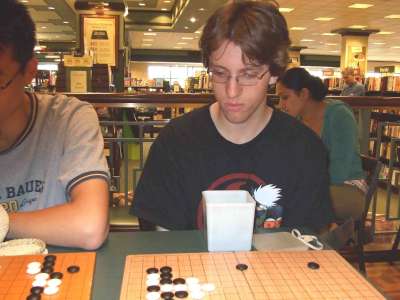
Brendan Wood, 15K
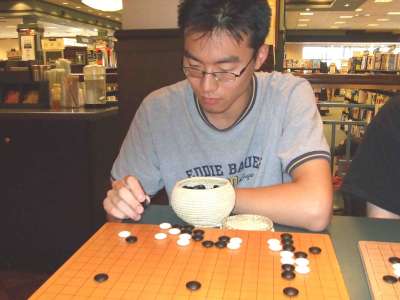
Jonathan Pu, 15K
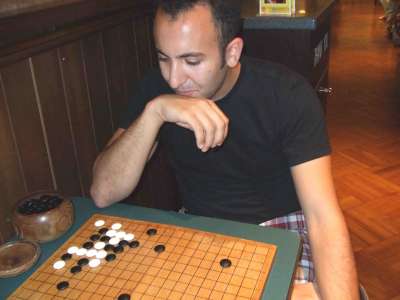
Mike Petralia, 17k
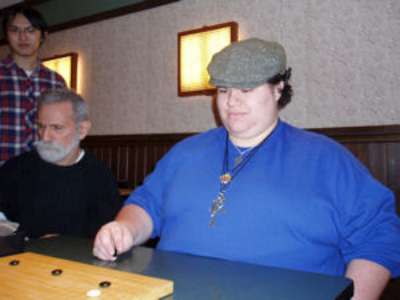
Michael Kenny, 17K
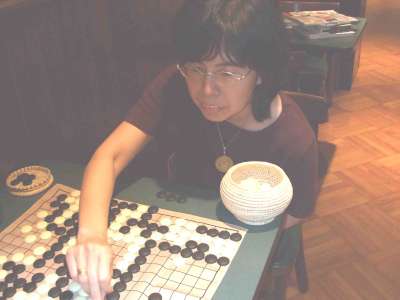
TJ Liu, 18K
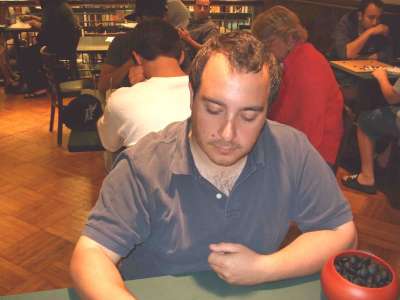
David Levy, 19K
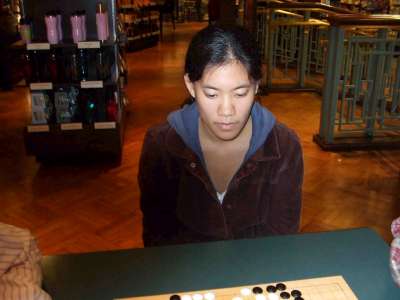
Iris Lin, 20K
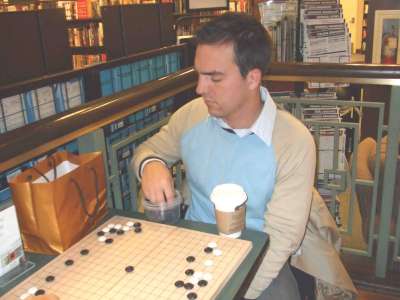
Corwin Kiestler, 21K
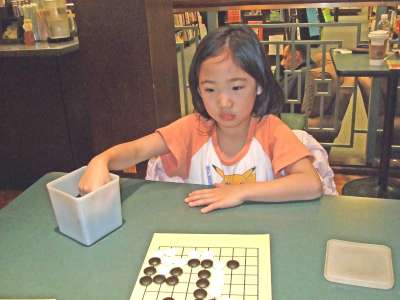
Barbara Huang, 21K
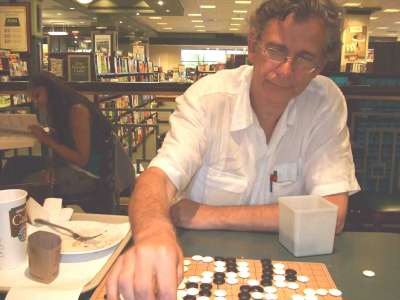
Sam Rock, 22K
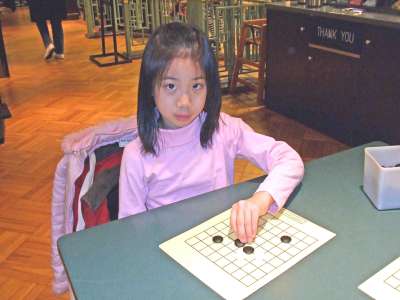
Joanne Huang, 25K
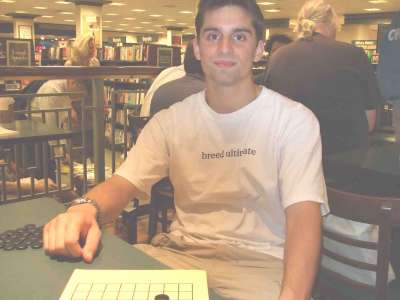
Joe Adams, 27K
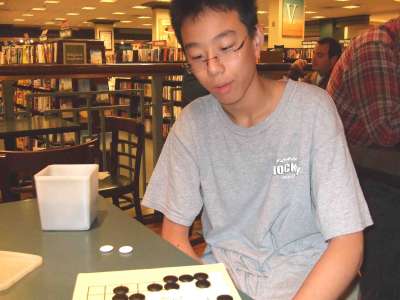
Steven Pu, 27K
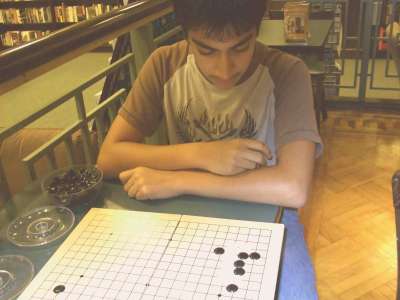
Arjun Dorde, 30k
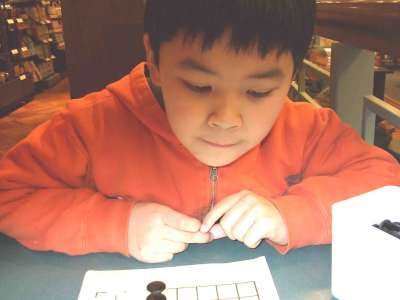
David Li, Beginner
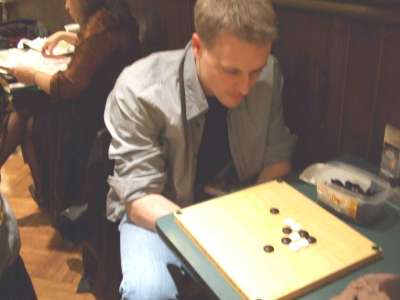
Todd Dickerson, Beginner
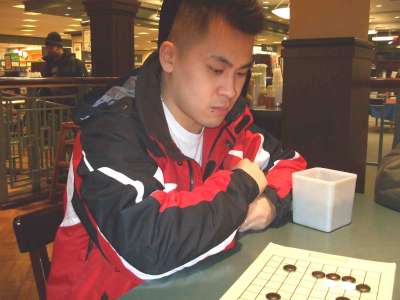
Sam Peng, Beginner
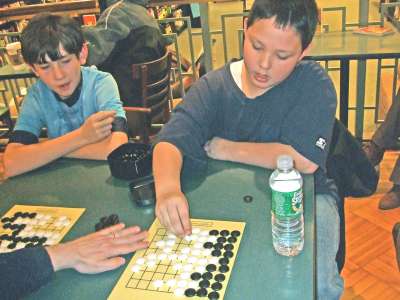
Matthew Zegilla, Beginner
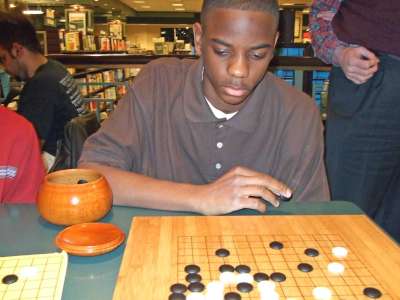
Jeff Rigueur, Beginner
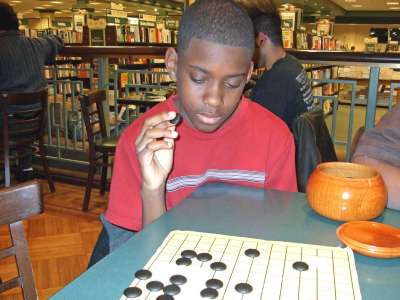
Joshua Rigueur, Beginner
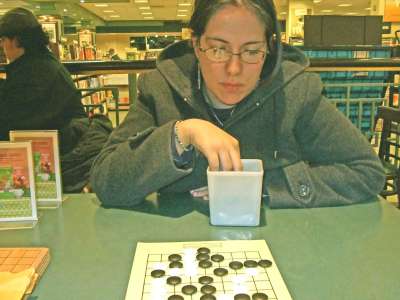
Darla Dodenhoff, Beginner
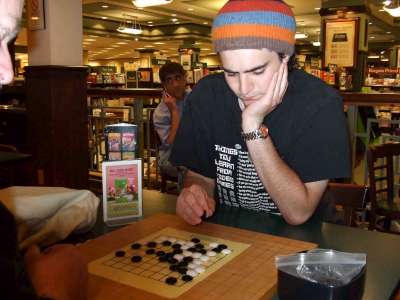
Ryan Glantz, Beginner
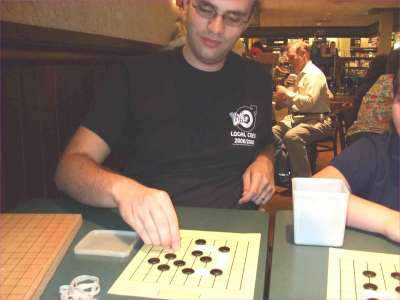
Neil Dodenhoff, Beginner
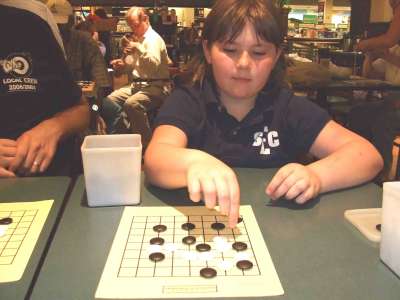
Kathleen Kelley, Beginner
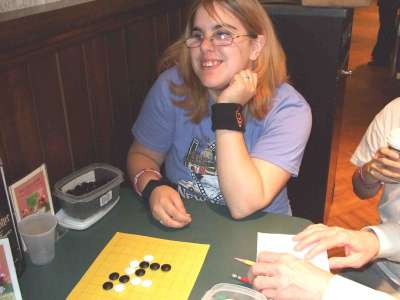
Ashley Winckel, Beginner
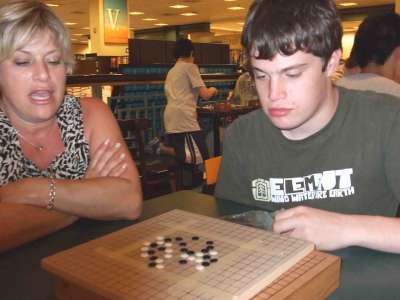
Matt Richmond, Beginner
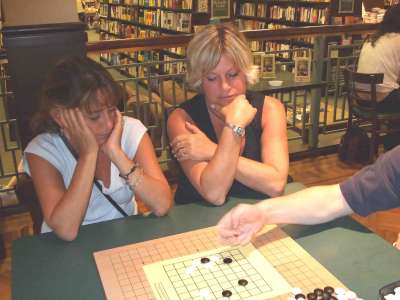
Andrea Richmond, Beginner
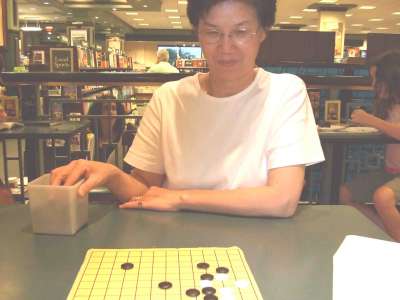
Susan Tsai, Beginner
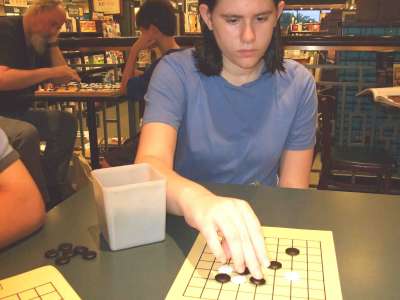
Rubi Passen, Beginner
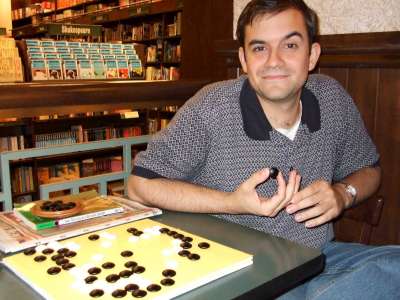
Christopher Adams, Beginner
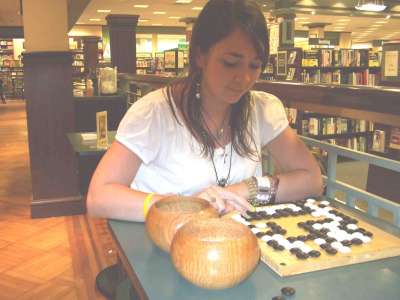
Sheila Casey, Beginner
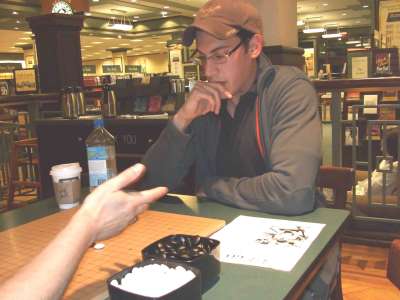
Matthew Glodowski, Beginner
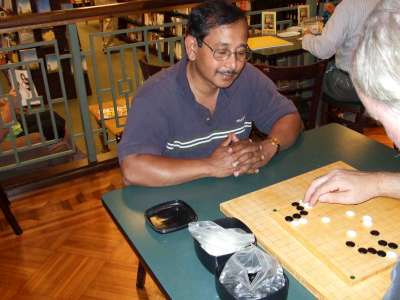
Aziz Huq, Beginner
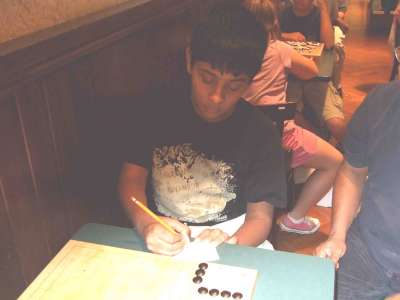
Zahin Huq, Beginner
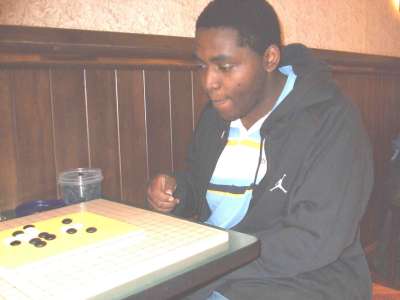
Reggie Alexandre, Beginner
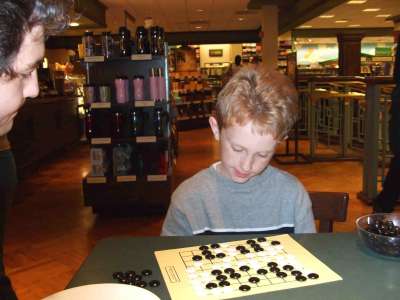
Brett Hebert, Beginner
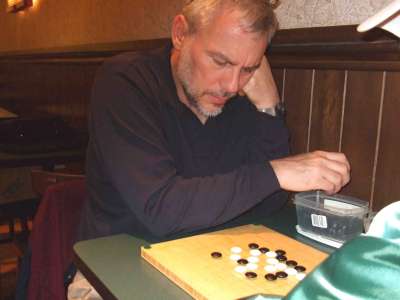
Bob Sohne, Beginner
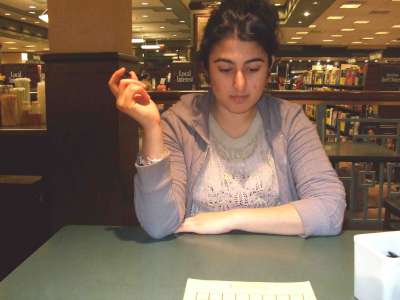
Raheema Kakar, Beginner
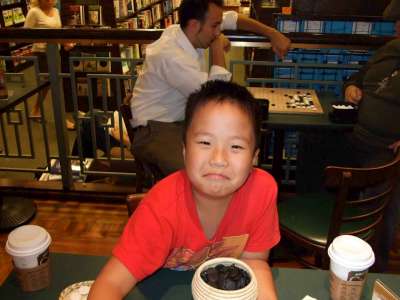
Jack Mok, Beginner
Club History
Immediately upon completing my family's relocation from New York City to suburban Long Island in January 1976, I began a search for Go opponents in the local area. The membership of the American Go Association revealed less than a half dozen among the over 2 million residents of Long Island, and, as later events revealed, I was never able to get more than one or two of even these select few to come together to play Go.
Announcements in the local press and my personal attempts at recruitment achieved only marginal success, so that until my retirement in 1986 the LIGC never was able to muster more than a half dozen or so to any of our regular Wednesday night meetings, which at that time were held mostly at local schools or my home.
The big change occurred in January 1991, with my lecture at the Half Hollow Hills Community Library in nearby Dix Hills, and its following newspaper coverage. In preparation for this event, I created and then personally distributed 4000 meeting notices door-to-door in the local area! As a bit of serendipity, this provided me with a particularly interesting insight into the completely unexpected rugged topography existing within only a mere half mile or so from the flat-as-a-pancake land of my own housing development, which had been built on a former potato field. But this nearby area, completely invisible from the major thoroughfares of Old Country Road and Wolf Hill Road which border it, consists of a miniature mountain called Pigeon Hill, in which many of the streets have grades as steep as any of the famous hills of Los Angeles or San Francisco. So distributing my fliers among those steep slopes required a bit more than mere persistence and stamina, but because doing so fit in perfectly with my normal exercise regimen it was a task willingly undertaken.
These notices were deliberately crafted to be provocative and (hopefully) intriguing, resulting in an attendance of 105, many of whom stayed after the main presentation on the history and social implications of Go for a lecture/demo on how Go is played. This latter group then became the nucleus of a vastly expanded LIGC. Serendipitously, as a result of having impressed the library staff by both my lecture's attendance (the largest ever at the library) and its content, my request for a permanent venue for our club meetings at their facility was granted, and henceforth, for about the next 10 years, we met at the library's Melville branch
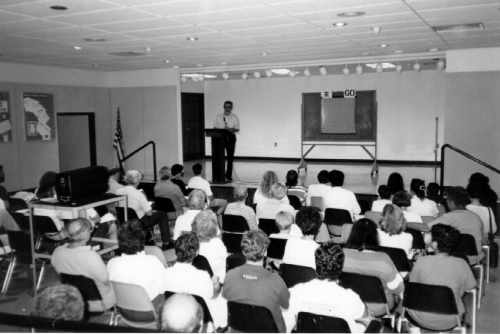
This was the scene at the Half Hollow Hills Community Library Lecture
The structure of the LIGC's meetings reflected my own personal experience and philosophy, and emphasized the training and nurturing of novice through "average" players. Each session began with an approximately 45 minute lecture/demo/Q&A session in which I reviewed the Fuseki (full board opening) of a game - preferably one played by the club's own members. My approach was to try to develop each member's strategic/tactical thinking. To achieve this, I requested suggestions from the attendees for each succeeding move, beginning with the weakest player and proceeding in ascending order of playing strength. That way each player's own thinking was revealed, yet the weaker players weren't influenced by what their betters thought Then, after all present had expressed their opinion, I explained the position's implications and what the proper move (or its feasible alternatives) was. Following the lecture, I paired the players off to play ladder matches using the AGA's "standard" 45/10 time limits.
The LIGC Rating Ladder had a number of unique characteristics, designed to make it simple to use yet accurate in its rankings. The numerical ratings assigned were "arbitrary", but tied to the standard AGA ranks by the fact that they were separated by exactly 100 points. Each win in a rated match resulted in a gain of 25 points, with the same amount deducted for a loss (so this was a true "zero sum" game). It therefore required an excess of 4 wins over losses to advance 1 rank, and conversely. Handicaps and Komi were established using standard AGA protocols.
The Dan-level players were assigned no point rating so that they provided a stable datum on which all of the other player's ratings could be based. This kept our internal ranks tied to the AGA's. Otherwise they would have "floated" and might readily have become completely unrealistic over time. The initial assessment of where each new player entered the ladder was made by the instructor, and was adjusted if necessary over the course of the first few rated games, although the need for this occurred very infrequently. The conservative nature of the Ladder's ranks was repeatedly proved over the years when our members have played in AGA rated tournaments, at which they invariably scored about 1-2 stones stronger!
Under this format the LIGC continued to grow until we were averaging about 20 members per meeting. But about 10 years ago the deleterious effects of 2 developments hit, and hit hard!. The first was a vast downturn in defense employment on Long Island, culminating in the effective demise of its largest employer (Grumman Aerospace), with a tremendous "ripple effect" on the remainder of the local economy. The second was the advent of Go on the Internet. Then a third, even more devastating development occurred to supply the coup de grace when the library's director resigned and the new director decided to cut back our use of the Melville meeting room to only twice per month. With the advent of these three successive blows attendance slipped badly, rebounded for a while to about 8 per session, and then tapered off again to a mere handful. Given this sparse attendance, at that time I decided to abandon the lectures and ladder matches, and to find a new meeting venue.
Since our move from the library to the Barnes & Noble bookstore, attendance has once again increased to the 6-8 range on average, but still remains only a pale shadow of what it was at our peak. A couple of years ago we got one new beginner from the graduating class at Chaminade High School in nearby Nassau County, who was so enthusiastic that another 4 of his classmates soon joined him! Tom advanced from absolute beginner to 9 K (and was still improving smartly) in only 4 months!The problem with this is that all of these fine young men are now attending college far from Long Island, so that other Go clubs will become the beneficiaries of our recruitment and teaching efforts.
Last year a 1K who is a Doctoral candidate and Graduate Assistant in Physics at the NY State University at Stony Brook began coming to the club when his heavy schedule permitted, and this year he’s brought with him another similarly credentialed Stony Brook doctoral candidate who is 5k. A few weeks ago, another new 5K showed up, and only last week a 1D Chinese computer programmer also appeared for the first time, so that the club’s viability seems assured, even if attendance at our weekly meetings still remains only a pale shadow of what it was in its best days.
In 2005, former World Artistic Pool Champion Andy Segal showed up, a recent convert to Go and at that time, rated at 18k* on IGS. Through dedicated study, lessons from Cornel Burzo on IGS and my instruction, within 3 months he was rated at 8K*, and is now officially at 6K* but on the verge of promotion to 5K*. Sadly, Andy has since dropped out of Go entirely, for undisclosed reasons. That's not untypical but really a shame, because he had real potential. Other significant player comings and goings at the LIGC since that time are detailed briefly in the section of this web page entitled My Personal Go History, URL just below.
As ever, we maintain our friendly, welcoming atmosphere in which beginners are not only encouraged but prosper.
Continue
Click Here To RETURN To My Personal Go History
Click Here To Go To NEW GO PROVERBS ILLUSTRATED
Click Here To Go To Improve Fast In Go
Click Here To Go To Learn Chess Fast
Click Here To Return To Milt's Go Page
Last Updated on Nov 30, 2009 by Milton N. Bradley